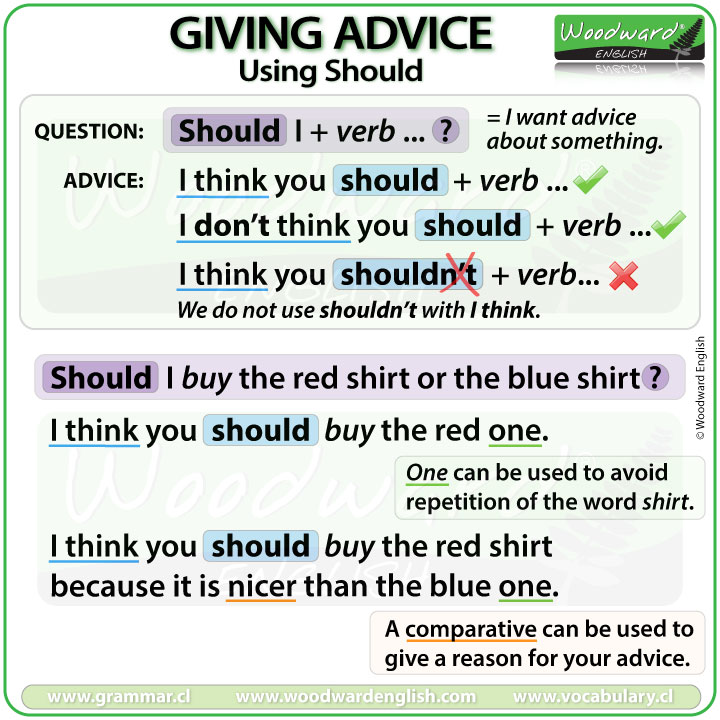Asking for advice in English
In English, one way to ask for advice is using the modal verb SHOULD.
We can make this type of question using ….
Should I + verb…?
For example:
- Should I stay or Should I go?
The question Should I…? … means I want advice or a recommendation about something
How can we GIVE advice in English?
One common way to respond to a question with SHOULD is to also use SHOULD in the answer.
You can start by saying:
- I think you should + verb*
* Remember, as mentioned in the last lesson, the verb is in the base form of the infinitive.
Here you are giving advice. You can also use other subjects like:
- I think HE should…
- I think WE should…
- I think THEY should…
How about when we want to give advice about what NOT to do. Here we use:
I DON’T think you should + verb.
- I don’t think you should go.
- I don’t think you should stay.
BUT be careful. We CANNOT say …
- I think you SHOULDN’T + verb. (No, this is NOT correct).
In English we do NOT use shouldn’t after I think.
Let’s put this to practice.
- Should I buy the red shirt or the blue shirt?
Here I am asking for your advice about which shirt to buy.
How could you respond this? One way is…
- I think you should buy the red one.
You can say… buy the red ONE …or… buy the red SHIRT. ONE can be used to avoid repetition of the word shirt and sounds more natural.
Now let’s give a reason why you think the person should buy the red shirt. You can do this by using a comparative. For example:
- I think you should buy the red shirt because it is nicer than the blue one.
Nicer is a comparative adjective. We are comparing the red shirt with the blue shirt.
When giving advice a comparative can be used to give a reason for your advice.
Giving Advice in English using SHOULD – Summary Chart

